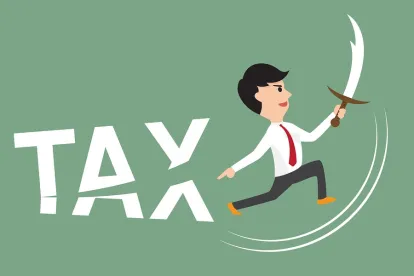As we all adjust to the "new normal" of social distancing and working remotely, Congress is very close to passing its phase 3 legislation (called the Coronavirus Aid, Relief, and Economic Security Act (the "CARES Act") to respond to the issues presented by the COVID-19 pandemic.
This article provides a high-level summary of the key individual and business tax provisions contained in the CARES Act. Like any tax legislation, there are many questions that must be addressed in the regulations that will be issued by the Treasury Department.
-
Tax Rebates to Individuals: The CARES Act provides tax rebate payments to individuals in the form of direct payments of $1,200 per individual ($2,400 for married couples), plus $500 per child, subject to phase-outs for high income individuals and families. Treasury Secretary Mnuchin has publicly stated that these funds, which are technically advance refunds of a 2020 tax credit, will be distributed within the next three weeks via direct deposit where possible.
-
Employee Retention Tax Credit: The CARES Act provides a refundable tax credit for businesses impacted by COVID-19. Eligible employers are allowed a tax credit against employment taxes equal to 50% of qualified wages (up to $10,000 in wages) for each employee. This tax credit is more flexible for businesses with 100 or fewer employees, but it still can be utilized by businesses with more than 100 employees.
-
Payroll Tax Deferral: Businesses can defer the payment of the 2020 employer portion of payroll taxes until 2021 and 2022, with 50% of the deferred payroll taxes being paid in 2021 and the other 50% being paid in 2022.
-
Carry-back of Net Operating Losses: The 2017 tax reform package removed the ability to carry-back net operating losses to generate tax refunds. The CARES Act reverses this and allows businesses with net operating losses in 2018, 2019, and 2020 to carry-back those losses to offset prior income reported for the prior five years. This provision will enable businesses to generate tax refunds by using tax losses generated in 2018, 2019, and 2020 to offset taxable income from the prior five year period. There is a similar provision for pass-through businesses that are operated as Subchapter S corporations, limited liability companies taxed as pass-throughs, and partnerships.
-
Increased Limits on Business Interest Expense: The 2017 tax reform package limited the ability of businesses to deduct business interest expenses by an amount in excess of 30% of adjusted taxable income. The CARES Act reverses this reform and allows businesses to deduct business interest expenses up to 50% of the businesses' adjusted taxable income.
-
Increases in Charitable Contributions: First, the CARES Act allows a $300 above-the-line deduction for charitable contributions that even helps individual taxpayers who do not itemize deductions. Second, the limits on the amounts of charitable contributions that can be deducted by individuals and businesses have been expanded. The bill increases the adjusted gross income (AGI) limit on charitable contributions to 100% of AGI for individuals (from 50%) and 25% of taxable income for corporations (from 10%). The bill also increases the food contribution limits from 15% to 25%.
-
Retirement Plan Assistance: There also are a number of tax provisions related to retirement plans and IRAs that our team will address in a separate article.




 />i
/>i
